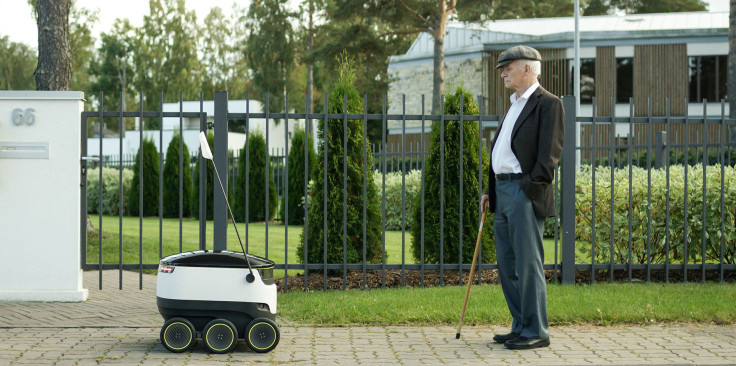Why Future Robots In The Workplace Might Pay Taxes

This question originally appeared on Quora. Answer by Dave Consiglio.
No. Capitalism should change.
Capitalism works reasonably well as an economic system - provided that human beings are required to do effectively all of the labor. It worked far better than previous systems (slavery most notably).
But capitalism has a long list of grievances, not the least of which is that human labor has slowly become devalued over time. 50 years ago in Detroit, an unskilled laborer could make a living wage on the assembly line. The reason for that was simple: the assembly line, and the company that made its profits off of it, needed those workers. There was a need, and the car companies were more than willing to pay workers to fill those needs. The workers won, the company won, it was a positive sum game.
But that game is changing, thanks to robots.
Right now, robots have replaced numerous unskilled jobs, and the jobs they are going to replace are about to explode. Consider people who drive a vehicle for a living. These are truck drivers, cab drivers, delivery people, the USPS, etc. Today, as I write this, there are machines that either can already do most of that job, or will very soon be able to do most (or all) of that job. The outcome of this revolution will be the unemployment of millions of people. Those “drivers” can drive 24/7/365 without a break, without insurance, without being paid.
Surely companies should pay back into the system via taxation in order to offset the amount of money they are no longer paying their employees.
It seems like a good enough idea, and I think it might actually happen. But I’d like to see something else change: capitalism itself.
A guaranteed basic income (see Is the World Ready for a Guaranteed Basic Income? - Freakonomics for a primer) is an idea gaining traction around the world. Essentially, this is the government paying a living wage to all people regardless of their situation: USBIG: What is BIG? People would be incentivized to work, but work would not be a necessary condition of receiving this income.
Now, this might sound like a horrible welfare state. But understand that you might well live to see the day where there simply aren’t enough jobs to employ half of the workers in this country. What happens when unemployment is 50%, not because of any lack of desire to work, but simply because all of the jobs a person can do are being done by a machine that is cheaper, faster, and better at it than a human could ever be?
Taxing robots might be a way to provide a GBI, but the problem with it is that there are too many loopholes. Companies will find ways to skirt the law, or lobby their way into legally avoiding paying these taxes, just as they do now. No, what is needed is wholesale change to our economic system. I would tie this to the requirements of a GBI - figure out how much a GBI would cost to implement, and set taxation rates for companies sufficient to fund that output. Eliminate income taxes altogether for all but the wealthiest people, and replace them with corporate taxes that are based on the total income of that corporation (regardless of location). So a company like Apple, which is “headquartered” in Ireland to avoid paying a lot of its US taxes, would suddenly be on the hook for a percentage of its global earnings, regardless of where those earnings were earned. Don’t like that deal? That’s OK, Apple, the government will simply revoke your right to sell in the US.
Now, this plan is unlikely to ever see the light of day, in part because huge companies like Apple have so much leverage in the US government (and others). In order for this to become a reality, we’ll need enough people (voters) to rise up and demand a change. Only then will we see a restructuring of our economy toward a system that is fairer to all people, not just the wealthy.
By the way, this is not a new idea. Star Trek covered it back in the 60s, and it was not new then. In Captain Kirk’s future, money wasn’t used on Earth. Instead, everyone was encouraged to work and was provided with all that they needed to survive and thrive. This was made easy by the amazing technology available to 23rd century humanity.
Sound familiar?





















